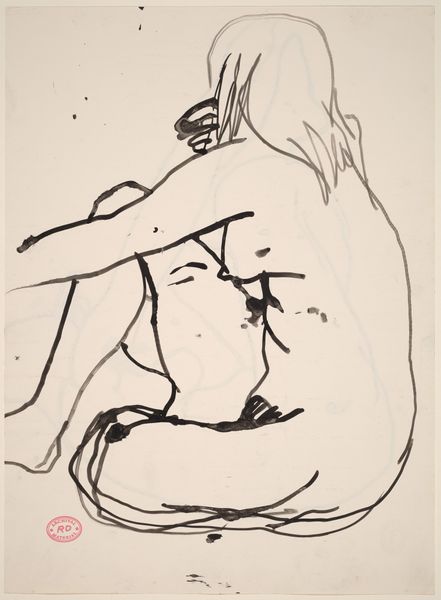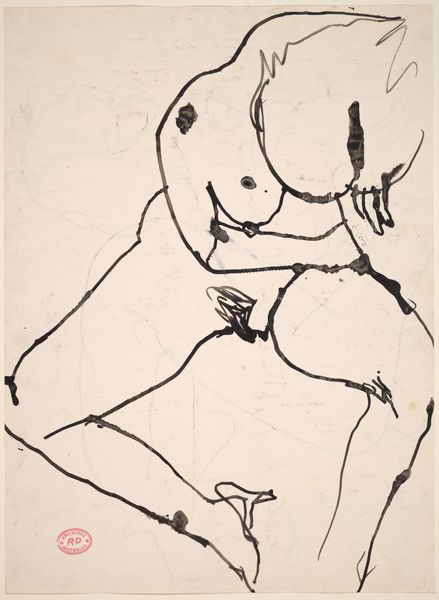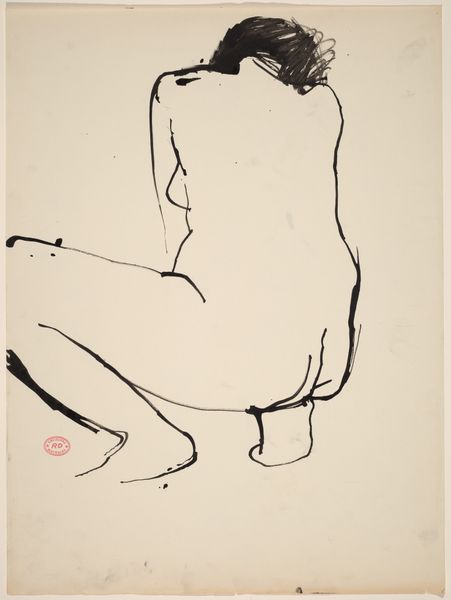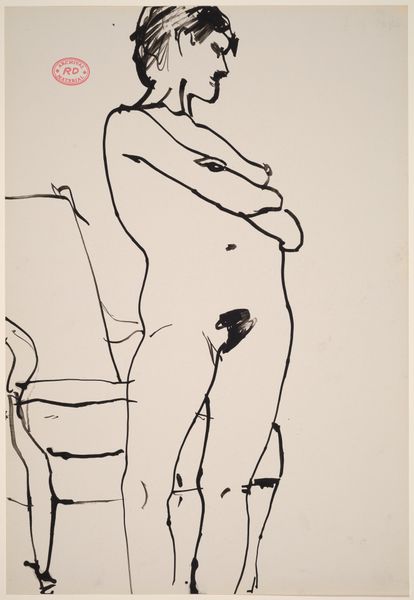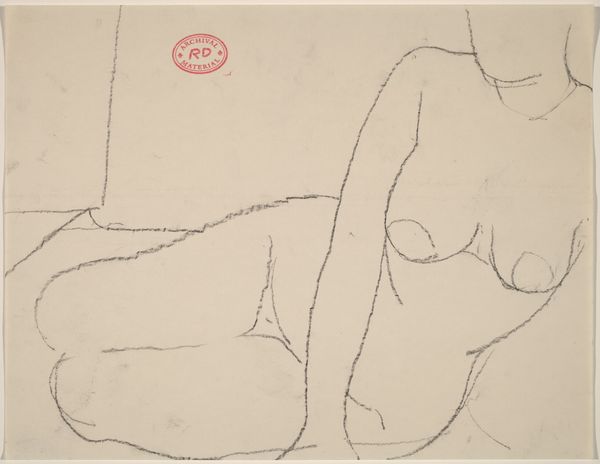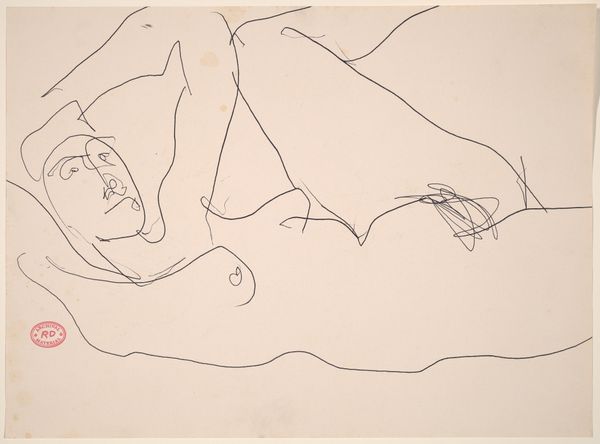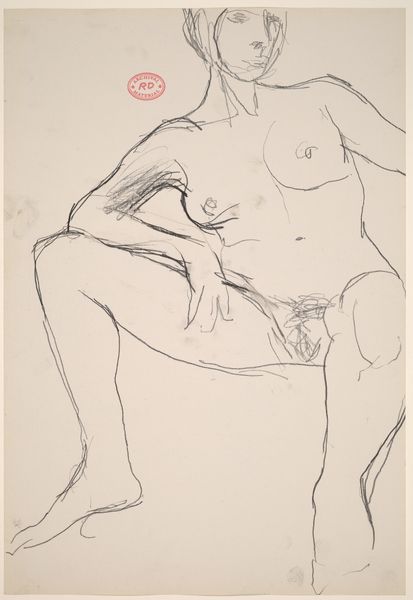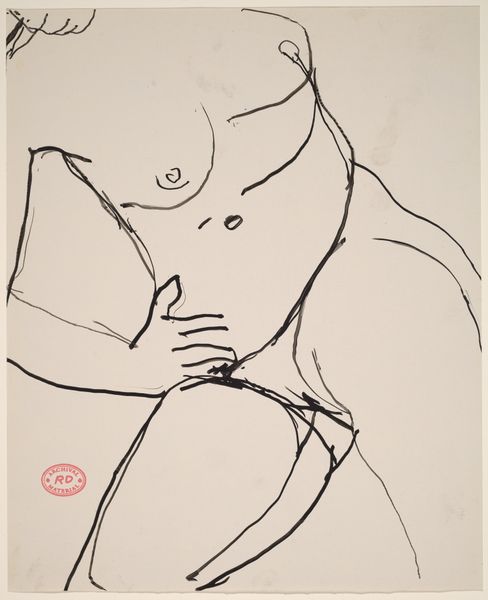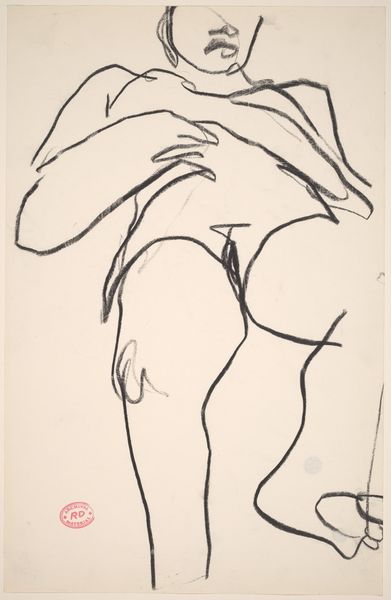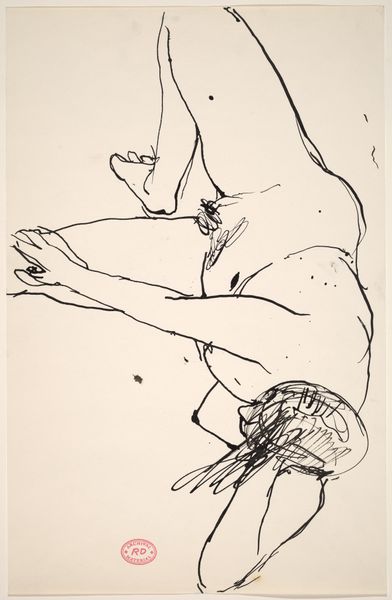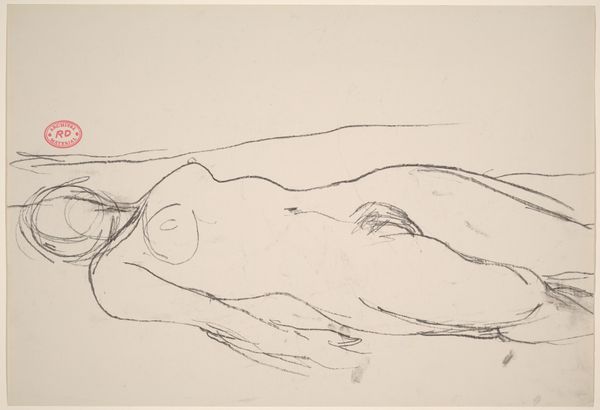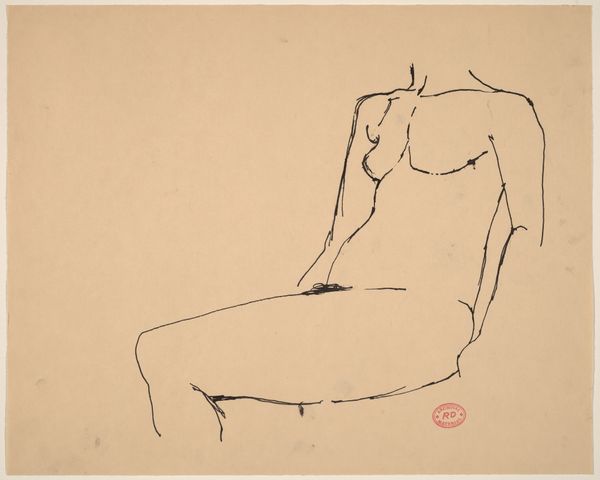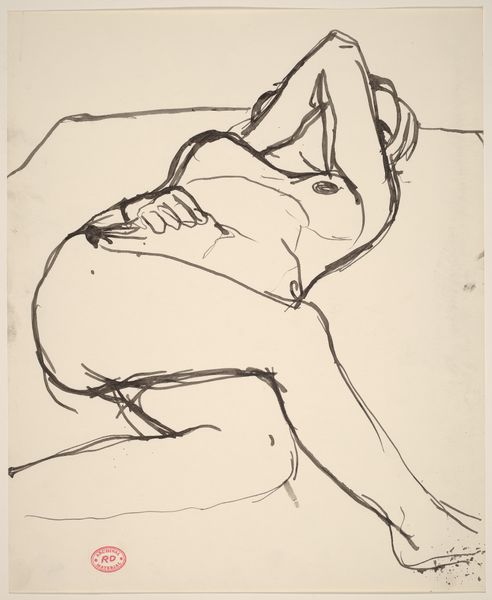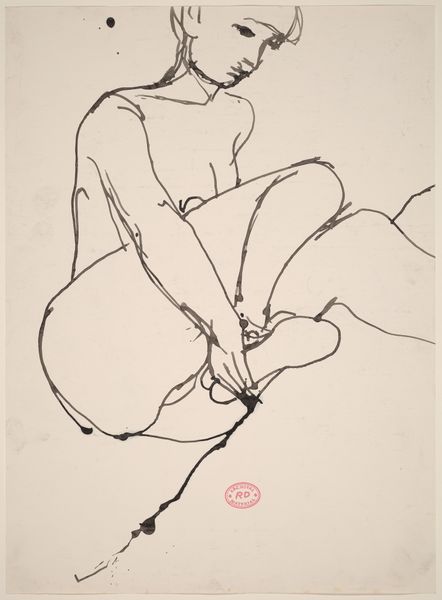![Untitled [side view of seated female nude] [verso] by Richard Diebenkorn](/_next/image?url=https%3A%2F%2Fd2w8kbdekdi1gv.cloudfront.net%2FeyJidWNrZXQiOiAiYXJ0ZXJhLWltYWdlcy1idWNrZXQiLCAia2V5IjogImFydHdvcmtzLzA2NDk5Njg5LTUyMjQtNGRmMS1iYWM0LTZjMjE2YzU5OWY2My8wNjQ5OTY4OS01MjI0LTRkZjEtYmFjNC02YzIxNmM1OTlmNjNfZnVsbC5qcGciLCAiZWRpdHMiOiB7InJlc2l6ZSI6IHsid2lkdGgiOiAxOTIwLCAiaGVpZ2h0IjogMTkyMCwgImZpdCI6ICJpbnNpZGUifX19&w=3840&q=75)
Untitled [side view of seated female nude] [verso] 1955 - 1967
0:00
0:00
drawing, ink
#
drawing
#
ink drawing
#
pen sketch
#
figuration
#
bay-area-figurative-movement
#
ink
#
line
#
nude
Dimensions: sheet: 31.75 x 43.18 cm (12 1/2 x 17 in.)
Copyright: National Gallery of Art: CC0 1.0
Curator: Looking at this ink drawing by Richard Diebenkorn, executed sometime between 1955 and 1967, one is immediately struck by the apparent simplicity of line. Editor: Yes, the economy of line is what gets me too. It's almost calligraphic, yet so raw. The figure seems vulnerable, huddled in on itself. There’s an emotional charge here that goes beyond mere representation. Curator: Considering Diebenkorn’s work more broadly, it’s important to remember his engagement with figuration amidst the abstract expressionist movement. The figure became, for him, a site of negotiation between abstraction and the lived experience. Editor: Absolutely. There is an almost palpable tension between representation and erasure. This is a nude, a very gendered subject position throughout the history of art. But there’s a quality to the pose – that embracing of self – which allows one to view the model on their own terms. It avoids being viewed through the "male gaze." The sketch creates an intriguing power dynamic, one that isn't entirely uncomfortable or rooted in visual exploitation of the sitter. Curator: The rapid strokes definitely suggest a sense of immediacy, a grappling with form. Yet there are passages, look near the head, where lines are repeated and layered, implying a search for the "right" form, an idealization. Diebenkorn's location on the West Coast, places him at a critical juncture, both influenced by but separate from the East Coast Abstract Expressionists, who remained in many respects quite politically conservative. The very act of continuing to explore the figure during this time became, for him, something of a subversive act. Editor: I appreciate you highlighting that tension. Because these quick marks aren’t merely a study of form. They seem charged with anxieties around form, the pressure of representation itself within a particular historical context. Curator: So, despite its seeming casualness, this ink sketch offers us insight into Diebenkorn's complex negotiation of artistic and socio-political concerns. Editor: Indeed. It reminds us that the “nude” can be so much more than just a genre. The figure is never just a form, it carries histories, and potential for resistance.
Comments
No comments
Be the first to comment and join the conversation on the ultimate creative platform.
